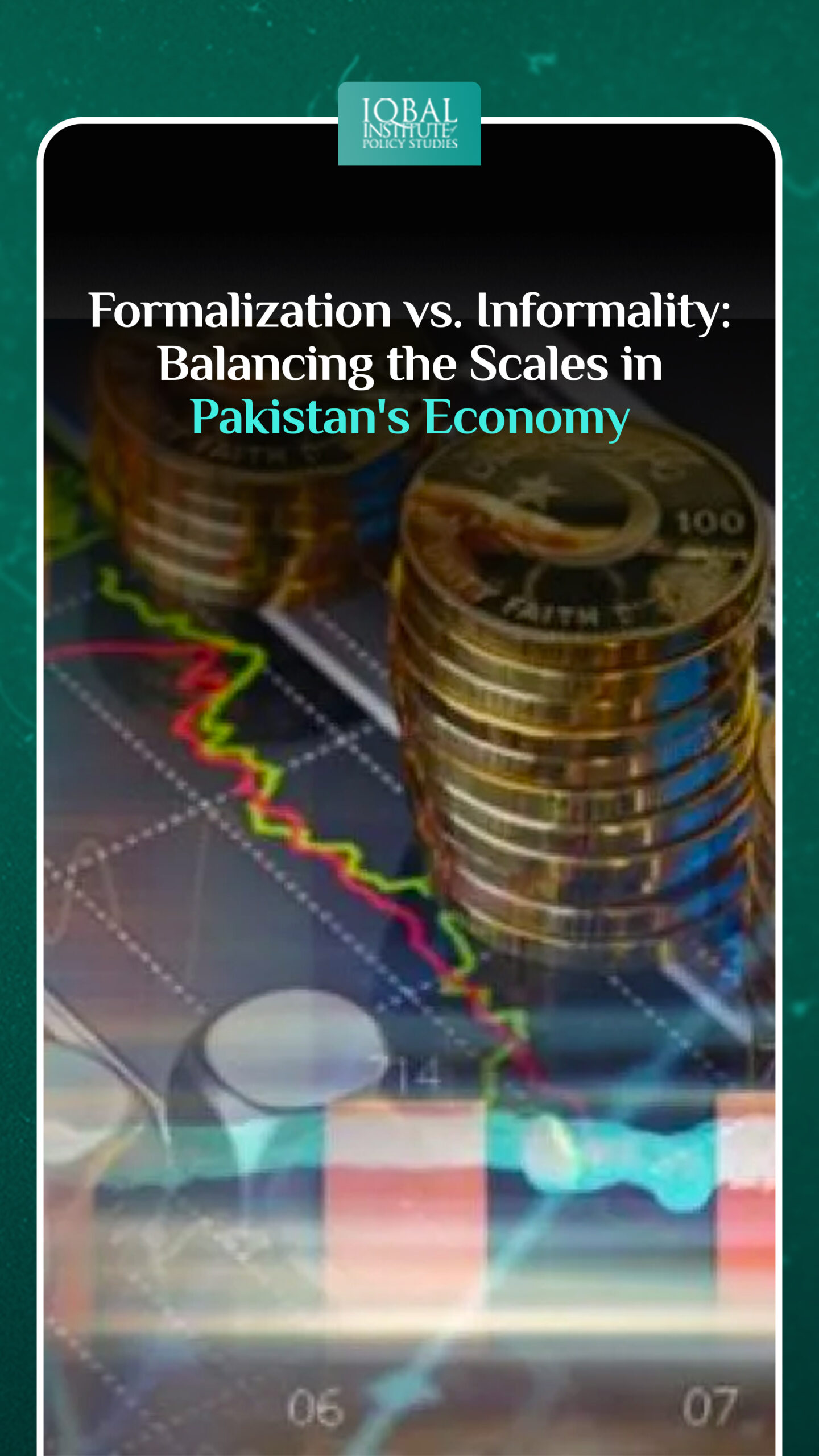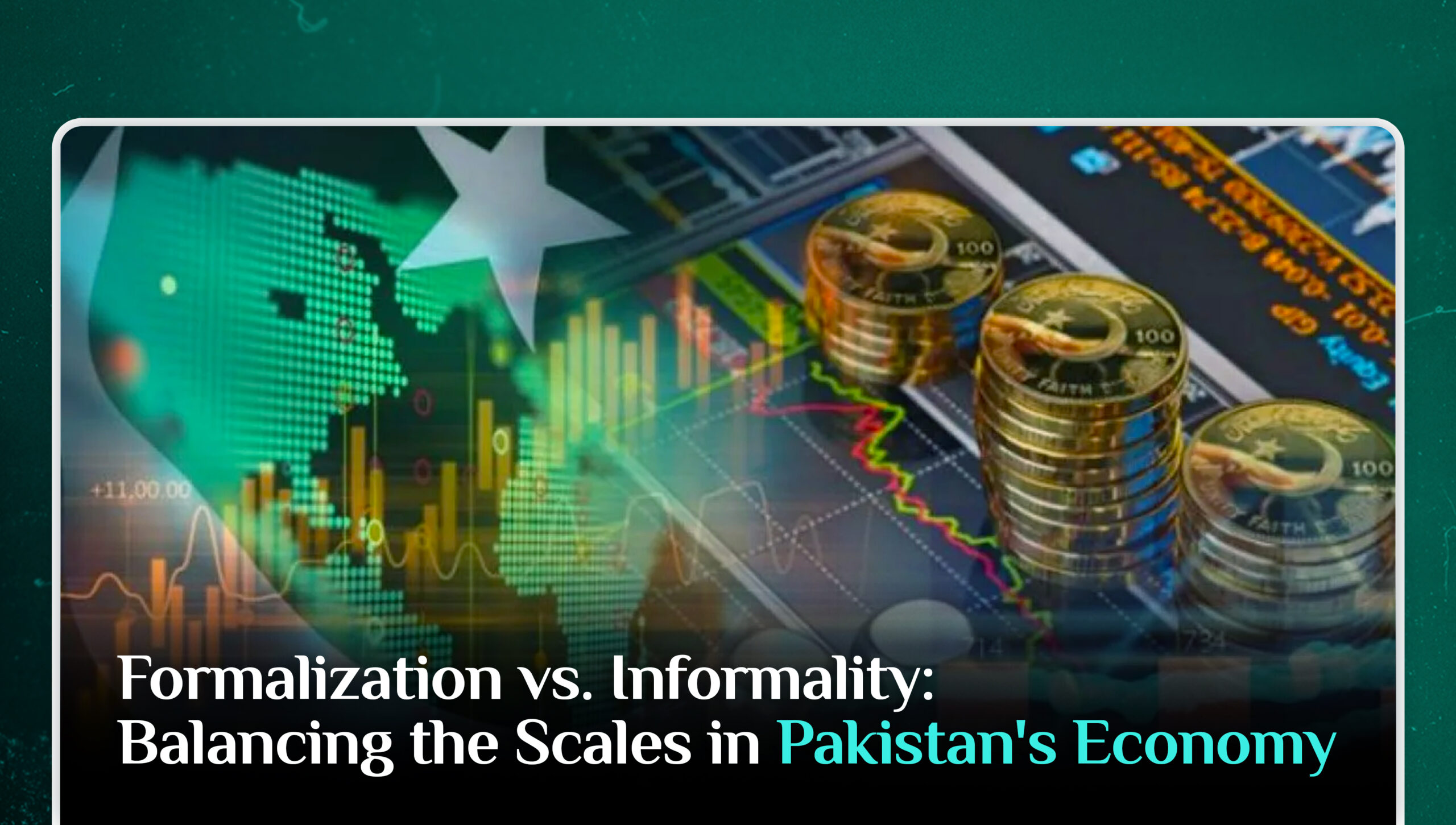Pakistan, a nation teeming with rich cultural heritage and a diverse population, is no stranger to the duality of its economy. It is a country where the formal and informal sectors coexist, each with its unique set of challenges and opportunities. The ongoing debate over formalization versus informality has taken center stage in discussions about Pakistan’s economic growth and development. In this blog, we will delve into the intricate dynamics of the formal and informal sectors in Pakistan, exploring the challenges they pose and the prospects they hold for the country’s future.
Understanding the Formal and Informal Sectors
Before we dive into the complexities of this issue, let’s define what the formal and informal sectors represent in the context of Pakistan’s economy.
Formal Sector
The formal sector includes all legally registered businesses and activities. These entities are typically regulated by government laws and labor standards. Formal sector workers often enjoy job security, social security benefits, and legal protections. They contribute significantly to the tax base and are seen as a crucial driver of economic growth.
Informal Sector
The informal sector, on the other hand, consists of unregistered businesses and workers operating outside the purview of formal regulations. These individuals and businesses are not subject to the same legal protections or tax requirements as their formal sector counterparts. The informal sector is marked by its diversity, encompassing activities such as street vending, small-scale manufacturing, agriculture, and domestic work.
The Challenge of Informality in Pakistan
The informal sector in Pakistan presents several challenges:
Lack of Legal Protections
Workers in the informal sector often lack the legal safeguards enjoyed by those in the formal sector. They face job insecurity, limited access to social security, and inadequate protection against exploitation and unfair labor practices.
Low Productivity
The absence of training and technology in the informal sector results in lower productivity and, consequently, lower incomes. This can perpetuate the cycle of poverty.
Limited Access to Financial Services
Informal sector businesses struggle to access formal financial services, including credit and insurance, which are crucial for expanding operations and mitigating risks.
Environmental Impact
The informal sector is not subject to the same environmental regulations as the formal sector, leading to issues like improper waste disposal and resource overexploitation.
Opportunities within Informality
Paradoxically, the informal sector also offers several opportunities:
Economic Growth
The informal sector contributes significantly to Pakistan’s economic output, providing jobs and boosting economic growth. Recognizing and supporting this sector can lead to increased economic activity and higher GDP.
Poverty Reduction
Integrating the informal sector can help lift people out of poverty. By providing legal protections, access to credit, and skills training, these workers can earn higher incomes and improve their quality of life.
Diversification of Economic Activity
The informal sector is diverse, encompassing a wide range of economic activities. This diversity can make Pakistan more resilient to economic shocks.
Social Inclusion
Many women, minorities, and marginalized communities find employment in the informal sector. Recognizing and supporting this sector can lead to greater social inclusion and equality.
Balancing the Scales: Policy and Strategies
To harness the potential of the informal sector in Pakistan, a combination of policy measures and strategies should be implemented:
Legal Reforms
The government should enact laws to protect the rights of informal sector workers, ensuring fair wages, working conditions, and job security.
Financial Inclusion
Efforts should be made to extend financial services to the informal sector, making it easier for businesses and individuals to access credit and insurance.
Skills Development
Providing training and education opportunities to informal sector workers can enhance their productivity and earning potential.
Registration and Taxation
Encouraging businesses in the informal sector to register and pay taxes can help broaden the tax base and generate government revenue for public services.
Social Safety Nets
Developing social safety nets can provide a safety cushion for informal sector workers, ensuring they have access to healthcare, education, and other essential services.
Conclusion
The formalization versus informality debate is a complex issue that requires careful consideration and balanced policies. While the informal sector in Pakistan faces numerous challenges, it also offers significant opportunities for economic growth, poverty reduction, and social inclusion. Recognizing and addressing the issues facing this sector is crucial for Pakistan’s long-term development. By implementing policies that protect the rights of informal sector workers, increase their access to financial services, and promote skills development, Pakistan can unlock the true potential of this vital segment of its economy. As the government and stakeholders work together to address the issues facing this sector, it becomes increasingly evident that the informal economy is not an obstacle to development but a valuable asset that, when nurtured and integrated responsibly, can fuel the nation’s progress. Balancing the scales between formalization and informality is key to a more prosperous and equitable Pakistan.
This article is written by Radma Noman. Radma is a research analyst at the Iqbal Institute of Policy Studies (IIPS).



Leave a Reply